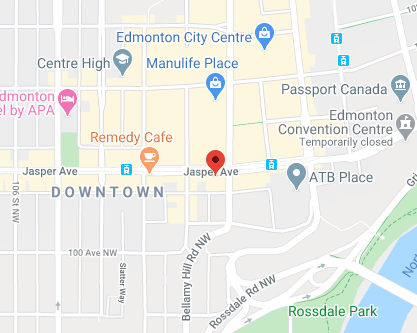Wage review – Temporary Foreign Worker Program (TFWP)
Wage review – Temporary Foreign Worker Program (TFWP)
In these instructions, “officers” refers to employees of both Immigration, Refugees and Citizenship Canada (IRCC) and the Canada Border Services Agency (CBSA).
These instructions should be reviewed in conjunction with the following:
- Labour market impact assessments (LMIAs)
- LMIA review
- Decision-making: Standard of review and making a reasonable decision
“Work” is defined in the Immigration and Refugee Protection Regulations (IRPR) as an activity for which wages are paid or commission is earned, or that competes directly with activities of Canadian citizens or permanent residents in the Canadian labour market.
This includes salary or wages paid by an employer to an employee, remuneration or commission received for fulfilling a service contract, or any other situation where a foreign national receives payment for performing a service.
Employers hiring temporary foreign workers under the Temporary Foreign Worker Program (TFWP) must provide those workers with the same wages and benefits provided to Canadian and permanent resident employees working in the same occupation, including temporary foreign workers working in a unionized position.
On this page
- Prevailing wage
- Prevailing wage reviews as of January 1, 2024
- Wage assessment
- Place of application
- Related links
Prevailing wage
The definition of “prevailing wage” is as follows.
For the purposes of the TFWP, employers must pay, at a minimum, the prevailing wage for the occupation. The prevailing wage in the streams for low- and high-wage positions is defined as the highest of
- the regional median hourly wage for the occupation posted on the Job Bank’s Wage Report
- a wage that is within the wage range paid to the employer’s current employees working in the same occupation and same work location, with the same skills and years of experience or
- the wage as defined by other publicly available labour market information that is considered a reliable source
Program streams, wage variations, unionized positions or positions in the province of Quebec can be subject to a variation to the above definition of prevailing wage.
For example
- The Seasonal Agricultural Worker Program (SAWP) and Agricultural Stream can use the National Commodity List instead of the Job Bank Wage Report.
- The Global Talent Stream has wage requirements that would determine if an occupation is included on the Global Talent Stream occupations list for Category A or Category B.
- Some industries have their own variations to wage requirements.
- Employers who hire temporary foreign workers for unionized positions must offer the same wage rates and forms of compensation as those established under the collective agreement.
- To hire a temporary foreign worker for a job in the province of Quebec, employers must consult the wage table provided by the Ministère de l’Immigration, de la Francisation et de l’Intégration (MIFI).
Prevailing wage reviews as of January 1, 2024
Employers are required to update the wages of temporary foreign workers to reflect the prevailing wage. This wage review, as part of the labour market impact assessment (LMIA) and employment agreement, ensures that temporary foreign workers are paid the prevailing wage at the start of and throughout their employment period. This requirement applies to all lines of business involving an LMIA.
Regardless of the wage indicated in the positive LMIA, employers are required to reassess and apply the prevailing wage at the beginning of a temporary foreign worker’s period of employment. The updated wage can be higher than indicated in the LMIA, but it can never go below the wage identified in the positive LMIA at any time during a temporary foreign worker’s employment period, even if the prevailing wage decreases.
For information on prevailing wage, consult Employment and Social Development Canada’s (ESDC’s) guidelines on wages.
Wage assessment
Officers are responsible for confirming that the wages offered to the foreign national are consistent with the prevailing wage rate.
Place of application
Note: Provincial minimum wage increases are mandatory, and should one come into force after an LMIA was issued, the LMIA remains valid, even when the contract presented by the applicant at the port of entry stipulates the new higher minimum wage.
An employer may increase the wage on the LMIA after a positive decision is rendered to comply with federal, provincial or territorial laws (that is, an increase in the provincial minimum wage). Some examples of minor modifications to wage that don’t need to be reported to ESDC include an increase in wages equal to or less than the highest of
- 2%
- the prevailing wage or
- Statistics Canada’s Consumer Price Index average annual inflation rate of the previous year
- The rate for 2023 is 3.9%.
Border services officers assessing a work permit application where there is a discrepancy in wages stated on the LMIA versus the contract provided by the applicant on arrival may still issue the work permit if they are satisfied that the wages meet the modifications allowed and are not reflective of a change in duties or occupation. The LMIA requires hourly wages in Canadian dollars. Wages paid in a foreign currency must have been verified at the time of the work permit application to ensure they meet the requirements of the minimum provincial or territorial wage laws.



 Email
Email